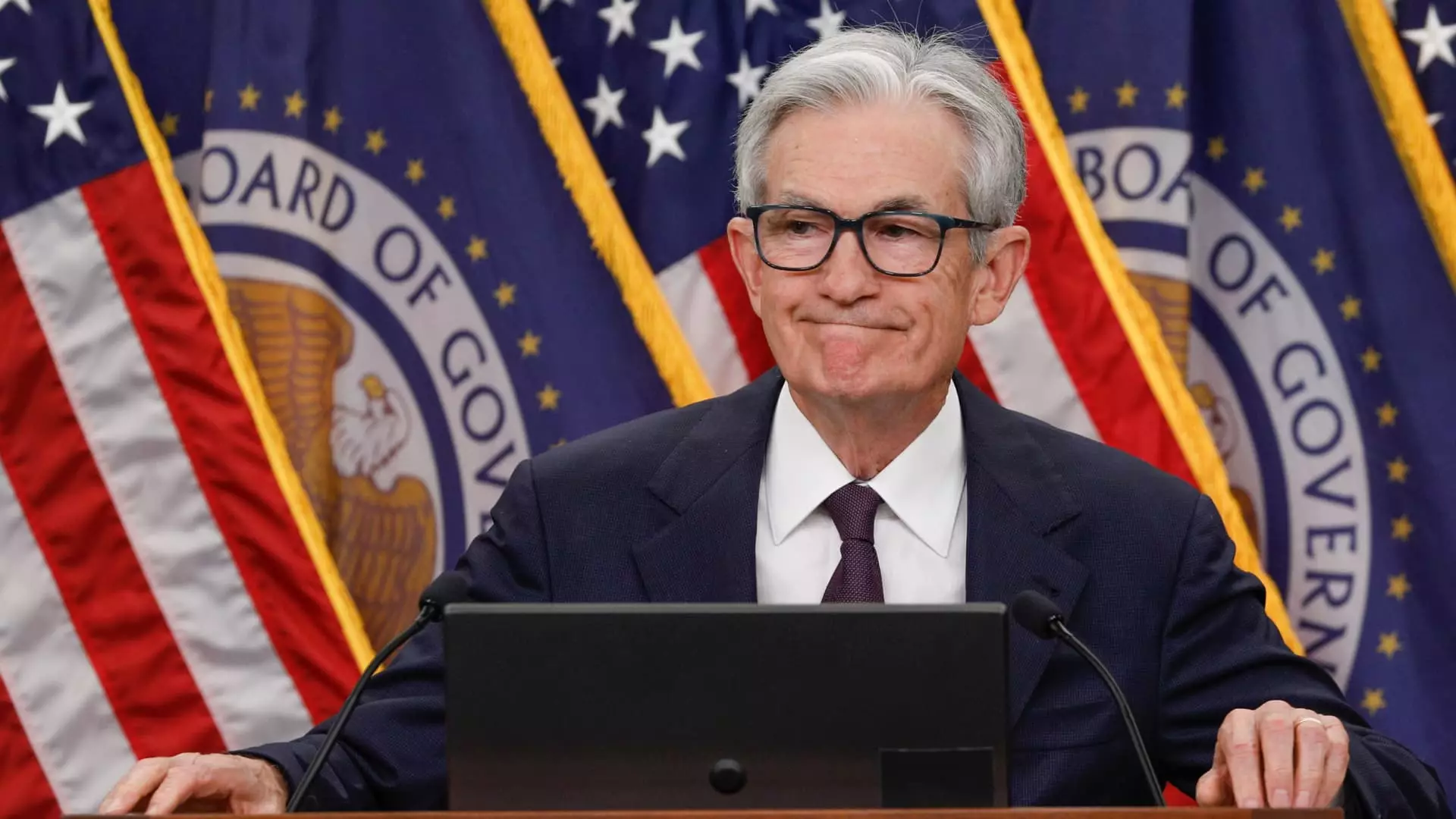As Federal Reserve Chair Jerome Powell prepares to testify on Capitol Hill, the stakes have never been higher. In a climate where political influence seems to seep into the sacred halls of monetary policy, Powell faces unprecedented scrutiny not just from Congress but also from the White House. His semiannual testimony, an occasion usually marked by standard economic discussions, is this time steeped in anticipation of rate cuts—a potentially dangerous move that could either revitalize the economy or spell disaster.
While Congress traditionally assumes a largely observational role during such testimonies, the pressure to lower interest rates has reached an intensity that demands attention. The backdrop of President Trump’s vocal insistence on aggressive cuts—suggesting a minimum of two percentage points—complicates matters significantly. As Powell steps into the spotlight, he carries the weight of a collective anxiety about economic stability meshed with a gale-force wind of political demand.
Political Interference: Eroding Independence
The Federal Reserve has long prided itself on its independence from political machinations; yet, with Powell on the receiving end of both bipartisan questioning and direct pressure from the President, that independence appears vulnerable. Notably, Fed Governors Michelle Bowman and Christopher Waller, both appointees from the Trump administration, have publicly indicated a willingness to consider interest rate cuts as soon as possible. Their pronouncements come after Powell expressed a more cautious stance, advocating for a patient approach amidst tariff-induced economic fluctuations.
This zealous shift towards potential rate cuts reflects a concerning trend—a movement towards intertwining the Fed’s decisions with political favoritism. Mohamed El-Erian, chief economic advisor at Allianz, hinted at this troubling development stating, “There’s some political influence starting to come into the FOMC.” Such statements should alarm anyone who values the integrity of our economic institutions.
The risk of the Federal Reserve sacrificing its longstanding principles for short-term political gain cannot be overstated. While efforts to stimulate the economy might seem appealing, the ramifications can swiftly deteriorate into a cycle of instability, echoing the recessions of the past.
The Risks of Immediate Action
As Wall Street emerges with increasing bets on interest rate cuts, the data supporting such an aggressive pivot bears scrutiny. Indeed, recent history shows that rapid cuts could yield counterproductive results. When the Fed reduced rates by a full percentage point between September and December last year, bond markets reacted contrary to conventional expectations. The notion that there exists a direct and swift correlation between Fed actions and economic outcomes is, as noted by Jai Kedia of the Cato Institute, more myth than truth.
This principle raises critical questions about the true mandate of the Federal Reserve—should it bow to the whims of political leaders or adhere to its responsibility to stabilize the economy? Kedia rightly points out that the Fed’s focus should remain on inflation and employment, and not succumb to external pressures. Sacrificing rifts in monetary policy for political expediency can undermine efficiency and trust within the broader economy.
The Dual Edge of Pressure and Responsibility
The demands from the White House for immediate cuts, while resonating with some lawmakers, fail to acknowledge the nuanced dynamics of economic governance. While both conservative and liberal factions have expressed support for lowering rates, neither truly grasp the consequence of such drastic interventions. With the demand for cuts as steep as two percentage points lingering in the air, one cannot help but feel that bipartisan agreement on this issue is flawed.
Moreover, Powell’s inclination towards a more measured approach isn’t merely cautious; it reflects an understanding that hasty decisions could jeopardize the Fed’s core mission and its credibility within the financial community. The Federal Reserve operates as a stabilizing force in the economy, and to risk that position by conforming to the pressures of partisan politics is not merely irresponsible—it borders on reckless.
Speaking candidly, if Powell compromises to appease the political barometer rather than guided economic principles, the fallout could be catastrophic. The interplay of government pressure against the Fed’s function establishes a dangerous precedent—one that prioritizes political expediency over systemic health.
In times of tumultuous economic uncertainty, we need leaders who possess the fortitude to resist the allure of rapid fixes, prioritizing long-term stability over transient gains. As Chair Powell stands before Congress, the challenge lies not solely in delivering convincing rhetoric but also in safeguarding the integrity of the Federal Reserve against the encroaching shadows of political influence.

